HomeReviewsAra: History Untold
Ara: History Untold review: a pretty, almost great resource management game chafing under a 4X suitDelegation of a nation
Delegation of a nation
Image credit:Rock Paper Shotgun/Xbox Game Studios
Image credit:Rock Paper Shotgun/Xbox Game Studios
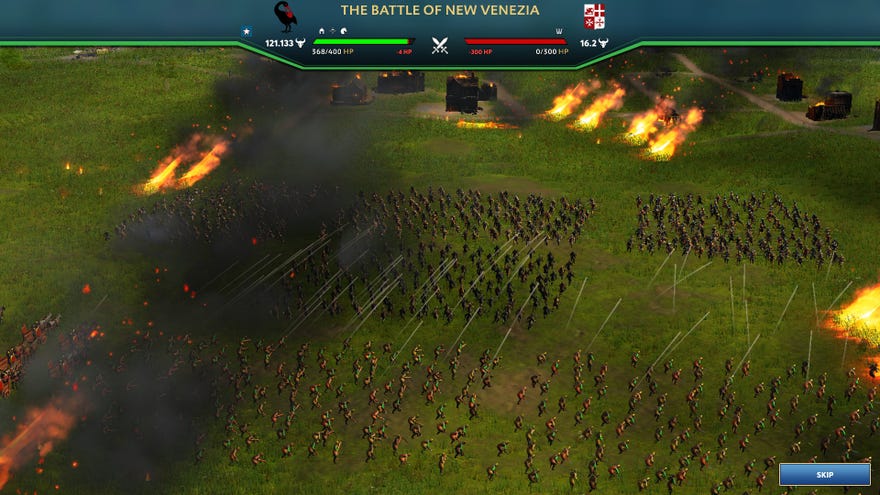
There’s an almost great game here, but it’s all neglected and bruised from being shoved into the packaging of a lacklustre 4X.
The premise is, for simplicity’s sake: Civilisation again. You pick a historical people and take them from Unk and Thogg scratching shapes on a rock with another rock to Unkbot Is God Now, probably conquering Ugg and Thonk’s tribe along the way.
Image credit:Rock Paper Shotgun/Xbox Game Studios
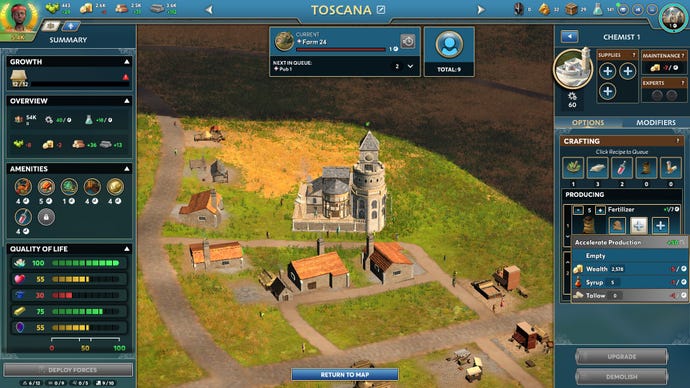
Another side effect if you linger to research more is that a later topic might become less desirable since you’ve already unlocked most of its rewards, gently encouraging replay variety as early priorities influence your later ones. I’d have had an interesting oral-only academia if I hadn’t eventually researched windmills.
Image credit:Rock Paper Shotgun/Xbox Game Studios
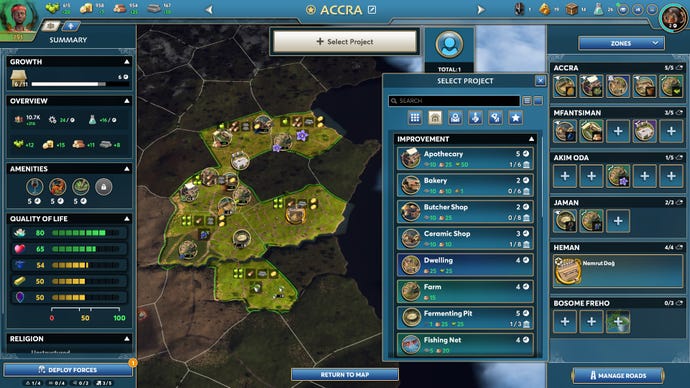
But first you have to extract the resources, which means building the right mine or farm on a specific slot within a region within a city. Instead of squares or hexes, you unlock procedurally generated regions as a city grows, which provide varying rates of food, gold, timber, and materials. All but gold can be multiplied again with the relevant farm/mines, but each region has a different number of building slots, some containing useful resources. Some buildings apply bonuses to others in their region (encouraging specialisation of certain industries like baking or metallurgy), and others apply bonuses to the city’s quality of life ratings - five measures like health, wealth, and happiness that divide or multiplyotherthings each city is doing. Growth is always a careful decision. You’re seldom just expanding into wherever the number is biggest.
Image credit:Rock Paper Shotgun/Xbox Game Studios
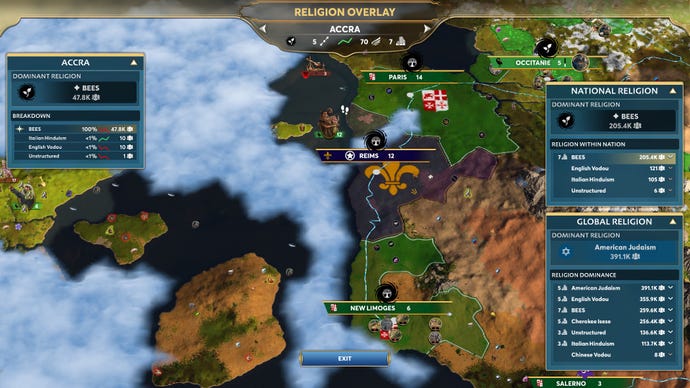
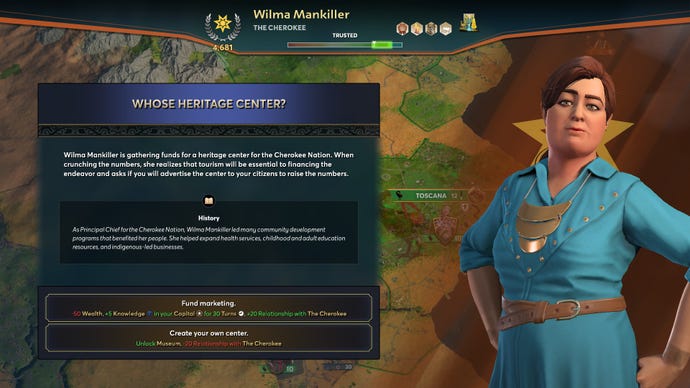
Image credit:Rock Paper Shotgun/Xbox Game Studios
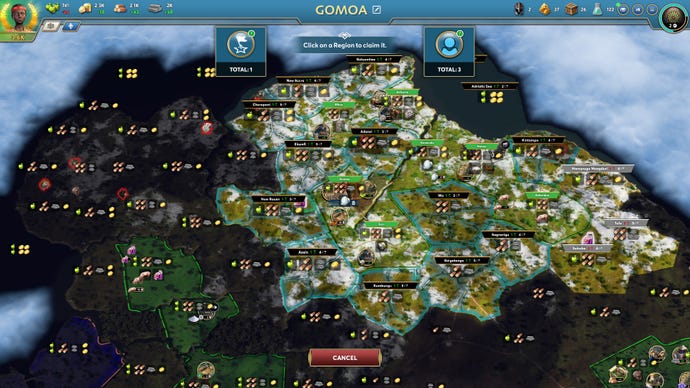
The second is that Ara’s robust item tooltips are where the convenience ends. Map overlays and summary screens are almost non-existent, and the longer you play, the more desperately you’ll want even some basic macromanagement tools. I liked the planning challenge, but the longer it went on, the more bogged down I got in the busywork of it. Manually equipping every factory with every tool, then zooming back out to search for that toolmaker and why it stopped working, trying to remember what materials hurry up that item, which city is constructing what where. You’re pointlessly notified of every single item produced or consumed, but not when they run out. God help you if you conquer a city, because it will be laid out all wrong and you’ll have to relocate ten buildings, while repeatedly reallocating all the manufacture. And the menu layout, god.
Ara’s world is teeming with detailed and varied animations, all to serve the 1% of time where you won’t be looking at the map (which doesn’t zoom out far enough) or the menus on either side of the pretty building (which consequently require far too much scrolling). Its battles show countless fully animated wardudes for completely non-interactive combat whose outcome is already revealed beforehand, removing all excitement.
It has dozens of playable civilisations, many under-represented in games and with less obvious leaders, with unique flavour text during rare era transitions. Yet they show no personality or discernible differences in behaviour, which is so fluctuant and opaque that I was ignoring all foreign relations messages before long, and a great many innate bonuses are so useless that the joy of playing as Boudicca, Osh-Tisch, or Step On Me Business Suit Sappho quickly fades to forgetting which you even are. That its simultaneous turn systemwas so hard to implementmakes its utter irrelevance all the more baffling.
Ara is an interesting and enjoyable spin on the Civ concept but becomes unwieldy long before it’s over. Figuring out how to build a thriving empire will be an enjoyable challenge to people looking for a certain kind of production chain game, but I don’t see its malnourished AI and ballooning micromanagement keeping them around once they do.